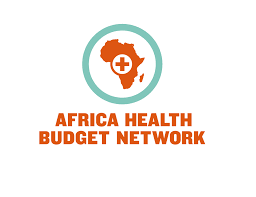By Iyemah David
The African Health Budget Network (AHBN), has called on Federal Ministry of Health (FMOH), to do more on the implementation of Reproductive, Maternal, Newborn, Child, Adolescent Health and Nutrition- (RMNCAH+N) in the country.
AHBN Coordinator, Dr Aminu Magashi Garba said this at the end of a three-day validation meetings in Abuja, on the Nigerian RMNCAEH+N Recovery Plan during COVID-19 Performance Scorecard and the Review and Validation of COVID-19 and Health Security Accountability Scorecard Template.
In January 2022, AHBN convened a retreat with CSOs, Media and Young People where the Nigeria RMNCAEH+N Recovery Plan was presented and advocacy engagement was planned to influence CSOs and young people’s participation and implementation the RMNCAEH+N COVID-19 Response Continuity Plan 2020-2022.
The plan officially launched by the Minister of Health, Dr Osagie Ehanire in 2021, was costed at N12.1 billion over three years.
The projected population in 2020 was 214,392,163. The population of women is 51.5 per cent out of which 38.06 per cent are of reproductive age.
Despite the considerable progress in the development of the health sector according to the 2018 Nigeria Demographic and Health Survey (DHS), the health status is still characterised by unacceptably high Maternal Mortality ratio of 512/100,000 live births with Under-qfive and Neonatal Mortality Rates of 132 and 39 per 1000 live births respectively.
The continuity plan was developed as a result of the impact of the COVID-19 pandemic on RMNCAEH+N services.
The AHBN coordinator said that on the implementation of RMNCAH+N, in the country, the government scored 50 to 60 per cent, which, he said was not too bad.
“What this means is that the government has to do more in the area of implementation. You are aware that COVID-19 crippled the economy. A lot of funding from the government is not available.
“So, government must be innovative and efficient in spending money. We need to ensure that every facility has electricity, security as well as adequate manpower not only during the day time but also at night and weekends,” he said.
Dr Magashi said that the RMNCAEH+N Recovery Plan during COVID-19 accountability scorecard was developed through rigorous analysis of the plan, 2021 and 2022 federal government approved budget and independent monitoring of the activities of the RMNCAEH+N coordination platform.
“The scorecard serves as an evidence tool to be used by all stakeholders including CSOs, media, advocates, young people and development partners to strategically influence actions that will promote performance, transparency and accountability in the implementation of Nigeria’s RMNCAEH+N COVID-19 Continuity Response Plan (2020-2022).
“The scorecard has three categories; Governance and Leadership, Budgetary Allocation and Disbursement, Accountability and Transparency,” he explained.
He said the government should strengthen coordination mechanisms for the provision of RMNCAEH+N services during the COVID-19 pandemic and other outbreaks at National and sub national levels.
He said that RMNCAEH +N can be strengthened through its implementation services through prioritization, sustained access, optimized health workforce and logistic supports for services during the COVID-19 and other outbreaks.
Magashi stressed that the government should enhance and improve on the existing risk communications and community engagement networks to halt community transmission.
He added that government can also track and document lessons learnt in the implementation of RMNCAEH+N services during COVID-19 outbreak and beyond.
According to Mrs Maimuna Abdullahi, Head of Monitoring, and Evaluation, AHBN, considering the massive number of financial resources committed to COVID-19 response in Nigeria.
Mrs Abdullahi said that the importance of adequate utilization of the resources cannot be overemphasized and the government, CSOs, media and young people have a huge role to play.
She said that the government need to be more transparent and accountable by providing information on the allocations, spending and releases while the media and NGOs must be able to track the utilization of the funds effectively to ensure its was used for the purpose that it’s meant for.
“The Performance Scorecard Template being reviewed and validated by stakeholders at this retreat will aid the NGOs and CSOs to easily track the performance of the COVID-19 and health security at the National and also the State levels,” she explained.
During the validation meetings, the participants finalised the RMNCAEH+N Recovery Plan during the COVID-19 Performance and the COVID-19 and Health Security Accountability scorecards.


